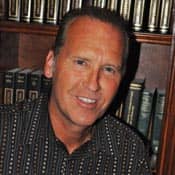After years of serving in various roles as a leader and alongside other leaders, I have come to believe that the two most common mistakes made by leaders are overestimating themselves and underestimating their responsibilities to the people they serve. This dangerous combination all too often fuels the foolish behavior of overstepping or overreaching as a leader.
Among the ranks of American presidents, some would say that George H.W. Bush overstepped when he said, "Read my lips..." and then created new taxes. Others would assert that Bill Clinton underestimated his responsibility when he lowered the standard of behavior in the Oval Office. Still there are those who would argue that George W. Bush overstepped when he went to war with Iraq. And it remains to be seen if America decides that Barack Obama overreached when he pushed massive health care reform upon a deeply divided and financially troubled Congress and country.
Nebuchadnezzar was by all accounts an astounding success as a leader. You might say he sat on top of the world. The absolute monarch of his day, he ruled over an empire that became a thing of legend for its sheer grandiosity and excess. At the center of his domain was the famed city he built, Babylon. About fifty miles away from modern-day Bagdad (Iraq), Babylon was vast in its appearance and size, including enormous surrounding walls, stunning towers, and the golden image of Baal purportedly weighing over fifty thousand pounds.
Babylon was also home to one of the ancient "Wonders of the World," the Hanging Gardens, and to a palace considered among the most magnificent ever built. Nebuchadnezzar ruled it all and at the very moment in which he found himself at the top of his game, he paused to reflect . . . on himself:
Is not this great Babylon, which I have built by my mighty power as a royal residence and for the glory of my majesty? (Daniel 4:29b-30, ESV)
Nebuchadnezzar had a kingdom, yes, but he also had a problem, a soul sickness, in fact. It is the same thing that affects, and infects, people today, all people and all leaders. It's called Pride. C.S. Lewis dubbed it "the essential vice, the utmost evil."
Pride is our default mode. Have you noticed? It fills us up with ourselves, our wants, our wishes, and Pride is never satisfied. As much attention and acclaim as a prideful person can draw to themselves, one thing is for sure—it is never enough. And . . .
Pride makes you compete with people instead of commune with them. Lewis said that, "Pride leads to every other vice: it is the complete anti-God state of mind . . . . Pride is essentially competitive—by its very nature . . . . Pride gets no pleasure out of having something, only out of having more of it than the next man. It is the comparison that makes you proud: the pleasure of being above the rest. Once the element of competition has gone, pride has gone."
But, there's more . . .
Pride makes you see only what others "should" be doing for you. It only looks through its own set of lenses. Our view of life has the ability to fuel such selfishness within us that the only lack we can see is our own, the only injustices that ever occur are towards us, and the only one who is truly entitled to the best of everything is (you guessed it) yours truly! But, worst and perhaps best of all . . .
Pride will precipitate a fall of some sort in your life. We can count on it. Proverbs 16:18 says, "Pride goes before destruction, and a haughty spirit before a fall." When Nebuchadnezzar's pride crossed the line, God sent a dream and a Daniel to him to warn him of the fall he would soon face.
. . . you shall be driven from among men, and your dwelling shall be with the beasts of the field. You shall be made to eat grass like an ox, and you shall be wet with the dew of heaven, and seven periods of time shall pass over you, till you know that the Most High rules the kingdom of men and gives it to whom he will. (Daniel 4:25, ESV)
Ultimately, Nebuchadnezzar absolutely fell apart as a person. His pride wasn't his doing; it was his un-doing. So much so, he became animal-like. He became "troubled" and deeply so; his sleep was disrupted, his mind confused, his life riddled. Pride damaged his person and altered his soul.
The good news about Nebuchadnezzar, however, was this: God would not leave him alone. As it turns out, he has an unlimited number of ways for dealing with my pride and yours. Chuck Swindoll once said, "For God to do an impossible work, he must take an impossible man . . . and crush him." In Nebuchadnezzar's case, God used a dream and a prophet to reach out to this taunting tower of a man. Daniel warned him that . . .





